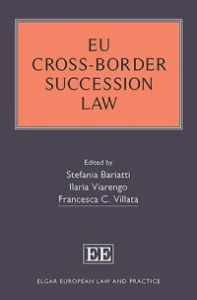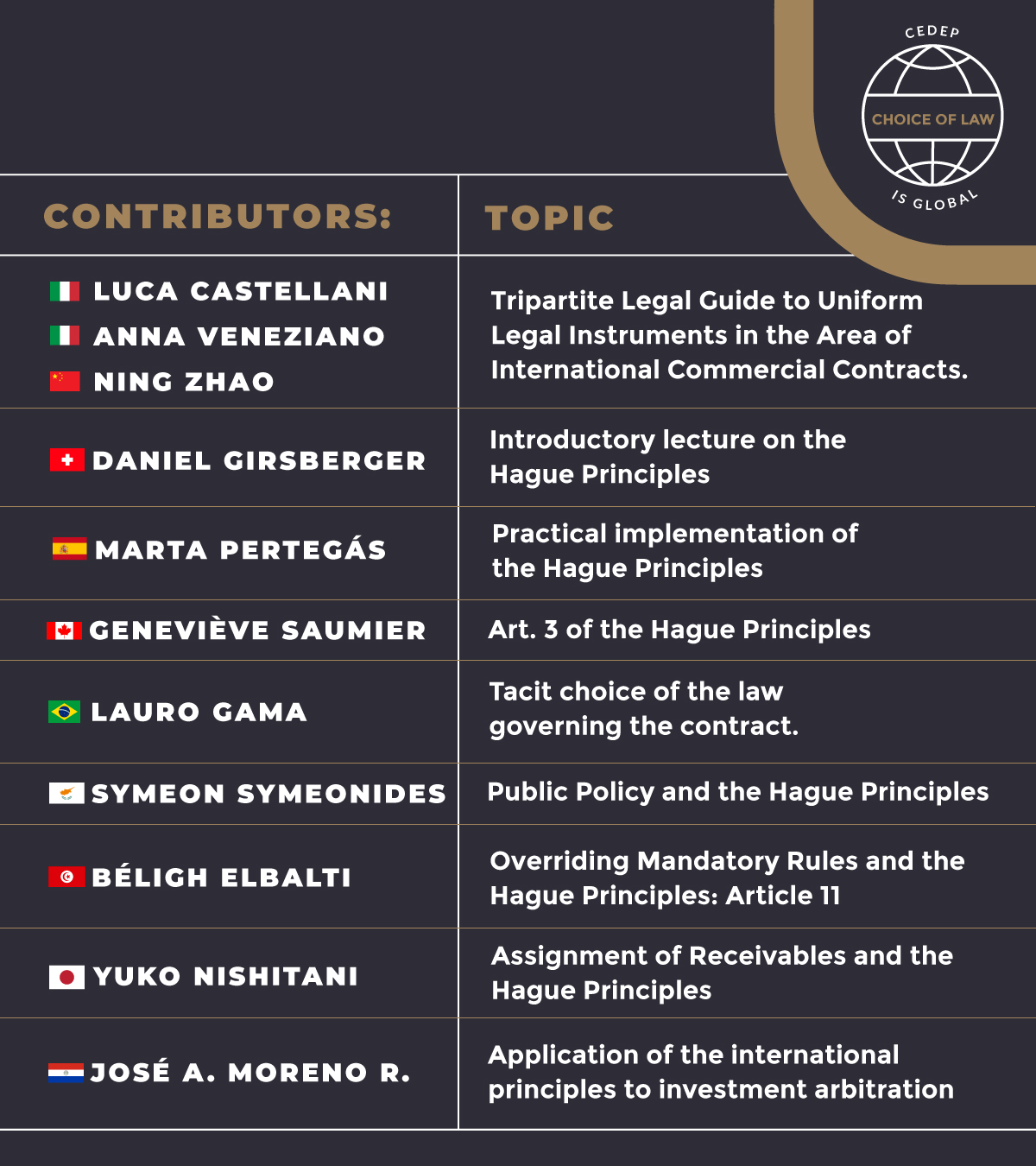Conference Report from Luxemburg: On the Brussels Ibis Reform
On 9 September 2022, the Max Planck Institute for Procedural Law Luxembourg hosted a conference on the Brussels Ibis Reform, in collaboration with the KU Leuven and the EAPIL.
The Brussels Ibis Regulation is certainly the fundamental reference-instrument of cross-border judicial cooperation in civil matters within the European Union. Since its establishment in 1968, it has been constantly evolving. At present, the European Commission is required to present a report on the application of the Regulation and to propose improvements. Against this background, a Working Group was set up within the network of the European Association of Private International Law (EAPIL) to draft a position paper. The group is led by Burkhard Hess (MPI Luxembourg) and Geert van Calster (KU Leuven). Members of the working group answered a questionnaire, reporting the application and possible shortcomings of the Brussels Ibis Regulation in their respective jurisdictions.
The topics of the conference were based on the 19 reports that were received from 16 working group members and 3 observers. Additional experts presented topics ranging from insolvency proceedings to third state relationships. The aim of the conference is to prepare a position paper. The paper will be presented to the European Commission to advise it on the evaluation process. EAPIL Members are invited to join the Members Consultative Committee (MCC) of the EAPIL Working Group on reforming Brussels Ibis.
After welcome notes by Burkhard Hess (MPI Luxembourg), Andreas Stein (Head of Unit, DG JUST – A1 “Civil Justice”, European Commission European Commission, connected via Video from outside), Gilles Cuniberti (University of Luxemburg/EAPIL) and Geert van Calster (KU Leuven), the first panel, chaired by Marie-Élodie Ancel, Paris, focused on the role and scope of the Brussels Ibis Regulation in European Procedural Law. Dário Moura Vicente, Lisbon, highlighted the Regulation’s indispensable function as a “backbone” of European civil procedural law, reaching far beyond civil and commercial matters into e.g. family law, in order to increase consistency. Room for improvement in this respect was identified, inter alia, for the definition of the substantive scope, in particular in relation to arbitration, the subjective or personal scope, in particular in relation to third state domiciled defendants, and for coordinating the relationships with other instruments such as the GDPR. Following up on the latter aspect, Björn Laukemann, Tübingen, analysed the delineation of the Regulation and the European Insolvency Regulation with a view to annex actions and preventive restructuring proceedings. No imminent need for textual reform was seen for the former, whereas for the latter suggestions for amendments of the Recitals were submitted. Vesna Lazic, Utrecht/The Hague, discussed the controversial judgment of the ECJ in London Steamship that certainly put again on the table the question whether the arbitration exception of the Regulation should be drafted more precisely. Whereas some argued that the large differences in the arbitration laws of the Member States would not allow any unifying approach based on notions of mutual trust, others held that there was some sense in the ECJ’s attempt not to get blocked the Spanish judgments in the UK via arbitration. As to the suggestion of a full-fledged European Arbitration Regulation, one reaction was that this might result in unintended consequences, namely exclusive external competence by the EU on arbitration. Further, the question came up whether in light of the ECJ’s judgment in London Steamship its earlier decision in Liberato should be rectified in the reform. In Liberato, the ECJ held that a violation of the lis pendens rules of the Regulation does not amount to a ground for refusal of recognition whereas in London Steamship the Court held that the lis pendens rules formed part of the fundamental principles of the Regulation to be respected under all circumstances. Speaking of lis pendens, another question in the discussion was whether a backbone instrument like the Brussels Ibis Regulation would or should allow de lege lata transferring certain core elements, such as the rules on lis pendens, to other instruments without any rules on lis pendens, such as the European Insolvency Regulation. The ECJ in Alpine Bau GmbH had rejected the application of Article 29 Brussels Ibis Regulation by way of analogy, as it considered the EIR as a special and distinct instrument of its own kind, so the question was whether analogies from the “backbone” should be encouraged expressly where appropriate in the concrete constellation.
The second panel, chaired by Burkhard Hess, dealt with collective redress. François Mailhé, Picardy, Stefaan Voet, Leuven, and Camelia Toader, Bucharest, discussed intensely the cross-border implications of the new Representative Actions Directive, in particular the potential need for specific heads of jurisdiction, as the Directive was described as subtly seeking to encourage pan-European actions but at the same time leaves a number of options to the Member States. Obviously, this means that provision and allocation of – ideally one-stop – jurisdiction would be of the essence, e.g. by extending the forum connexitatis of Article 8 (1) Brussels Ibis Regulation to connected claimants, possibly even for third state domiciled claimants. However, concerns were formulated that the Brussels Ibis Regulation should not be “politicized” (too strongly). In addition, the importance of other aspects were highlighted such as coordinating and consolidating proceedings, the delineation of settlements and court judgments in respect to court-approved settlements (probably to be characterised as judgments) and the essential role of funding. The overall tendency in the room seemed to be that one should be rather careful with (at least large-scale) legislative interventions at this stage.
The third panel, chaired by Thalia Kruger, Antwerp, focused on third state relations. Chrysoula Michailidou, Athens, discussed potential extensions of heads of jurisdiction for third state domiciled defendants, in particular in respect to jurisdiction based on (movable) property and a forum necessitatis. Alexander Layton, London, focused on the operation of Articles 33 and 34 and reiterated the position that discretion of the court to a certain extent was simply inevitable, also in a distributive system of unified heads of jurisdiction, as it is provided for e.g. in these Articles, in particular by the tool of a prognosis for the chances of recognition of the future third state judgment (“Anerkennungsprognose”) in Article 33(1) lit. a and Article 34(1) lit. b, and by the general standard that the later proceedings in the Member State in question should only be stayed if the Member State court is satisfied that a stay is necessary for the proper administration of justice (Articles 33(1) lit. b and 34(1) lit. c). Further, the question was posed why Articles 33 and 34 would only apply if the proceedings in the Member State court are based on Articles 4, 7, 8 or 9, as opposed to e.g. Articles 6(1) and sections 3, 4 and 5 of Chapter II. The author of these lines observed that relations to third states should be put on a consistent basis including all aforementioned aspects as well as recognition and enforcement of such judgments. Further, need for clarification, e.g. in the respective Recitals, was identified for the question whether there is an implicit obligation of the Member State courts not to recognize third state judgments that violate Articles 24, 25 and the said sections 3, 4 and 5 of Chapter II. This could be framed as a matter of the Member States’ public policy, including fundamental notions of EU law (see ECJ in Eco Swiss on another fundamental notion of EU law as an element of the respective Member State’s public policy). The central point, however, was the suggestion to correct the latest steps in the jurisprudence of the ECJ towards allowing double exequatur, if a Member State’s lex fori provides for judgments upon foreign judgments (see ECJ in H Limited). Options for doing so would be either adjusting the relevant Recitals, 26 and 27 in particular, or the definition of “judgment” or inserting another specific ground for refusal outside the general public policy clause, thereby in essence restating the principle of “no double exequatur” within the mechanics of the Regulation as understood by the ECJ, or limiting the effects of a judgment upon judgments for the purposes of the Brussels system, a method (altering the effects of a judgment under its lex fori) employed by the ECJ in Gothaer Versicherung in respect to other effects of a judgment from a Member State court, or, finally, by introducing an entire set of rules on the recognition and enforcement of third state judgments. In the latter case, all measures would have to be coordinated with the latest and fundamental development within the EU on third state judgments, namely the (prospective) entering into force of the HCCH 2019 Judgments Convention on 1 September 2023. Anyone who is interested in what this Convention could offer should feel warmly invited to participate and discuss, inter alia, the interplay between the Brussels and the Hague systems at the Bonn / HCCH Conference on 9 and 10 June 2023.
The next panel, chaired by Geert van Calster, related to certain points on jurisdiction and pendency to be reformed. Krzystof Pacula, Luxemburg, discussed Articles 7 no. 1 and no. 2 and, inter alia, suggested abstaining from a general reformulation of these heads of jurisdiction but rather opted for concrete measures for improving the text in light of lines of case law that turned out to be problematic. Problems identified were, inter alia, the delineation of the personal scope of Article 7 no. 1 in light of the principle of privity of contracts (“Relativität des Schuldverhältnisses”) and the concurrence of claims under Article 7 no. 1 and no. 2. In this regard, it was discussed whether both of these heads should allow to assume annex competence in regard to each other. Marta Requejo Isidro, Luxemburg, discussed the intricate interplay of Article 29 and 31 and, inter alia, considered increased obligations of the two Member State courts involved to coordinate conclusively the proceedings, for example by inserting certain time limits and, in case only the non-designated court is seized, powers to order the parties to institute proceedings at the designated court within a certain time limit. Otherwise the court seized should decline jurisdiction finally. Victória Harsági, Budapest, discussed the implications of the judgment of the ECJ in Commerzbank in respect to balancing consumer protection with foreseeability when the consumer, after a Lugano Convention State court has been seized with the matter, transferred its domicile to another (Lugano Convention) State, thereby creating the only international element of the case. Burkhard Hess dealt with reforming Article 35 of the Brussels Ibis Regulation after the ECJ in Toto and observed that there was no express hierarchy between measures under that Article and measures by the court of the main proceedings, and the Court did not infer any such hierarchy in its decision. The suggestion, therefore, was to think about introducing express coordination, be it along the lines of Rules 202 et seq. of the 2020 European Model Rules of Civil Procedure, be it along those of Article 6(3) of the 2022 Lisbon Guidelines on Privacy (on these see here and here), be it along those of Article 15 (3) Brussels IIter Regulation. Good reasons for the latter approach were identified, and this led back to the fundamental question to what extent the notion of a coherent “Brussels system” might allow even de lege lata not only to apply concepts from the Brussels Ibis Regulation, the “backbone” of that system, to other instruments by analogy, but also vice versa from the latter instruments to the former.
The last panel started with a submission by Gilles Cuniberti, Luxemburg, to remove Article 43, based on a number of reasons, as the Brussels I Recast aimed at removing “intermediate measures” such as exequatur, which rendered it inconsistent to uphold the intermediate measure foreseen in Article 43 – service of the certificate of Article 53 upon the judgment debtor. This was held to be all the more so, as this measure would primarily protect the debtor, already adjudged to pay, to an unjustifiable degree. Marco Buzzoni, Luxemburg, discussed the adaptation of enforcement titles under Article 54, a provision that was held to be one of the major innovations of the last Recast but turned out to be of little practical relevance. A similar provision had been proposed in the preparatory works for the HCCH 2019 Judgments Convention (February 2017 Draft Convention, Article 9), but was ultimately dropped, as opposed to the 2022 Lisbon Guidelines on Privacy (see its Article 12(2) Sentence 2). Vesna Rijavec, Maribor (unfortunately unable to attend for compelling reasons, but well represented by the chair, Geert van Calster) presented proposals on refining Articles 45(1) lit. c and d, mainly arguing that these should connect to pendency (as had already been proposed by the Heidelberg Report for the Recast of the Brussels I Regulation).
An overall sense of the conference was that no radical revolutions should be expected in the forthcoming Recast, which should be taken as another sign for the overall success of the backbone of the Brussels system, but that there was quite some room for specific and well-reasoned improvements. The conference contributed to preparing these in a truly excellent and inspiring way and in outstanding quality.



